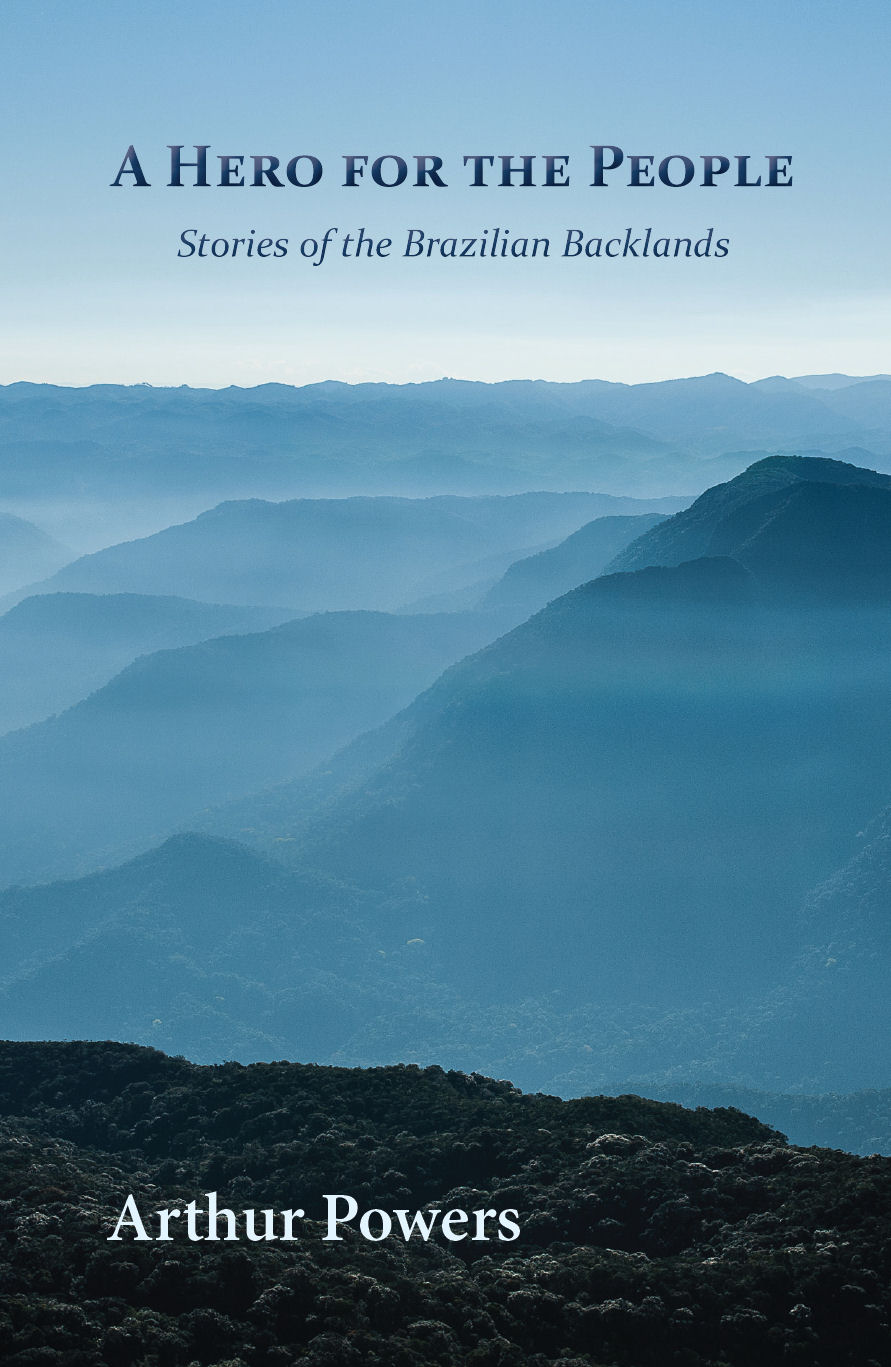Arthur Powers’ experiences while living in Brazil seep into his short stories such the descriptions of brightly painted shacks, savvy street vendors and shady samba schools in the big city slums or the night-time, pick-up truck ride through the swishing tall grass of the backlands, to the accompaniment of an orchestra of chirping and buzzing, insects, a chorus of tropical frogs and a solo performances by a screeching monkey. As night yields to the dawn, the overture of chattering birds greets the sun, but there is a darker side of the Brazilian experience.
Sixteen short stories portray life and death, heroes and villains in the backlands and slums of Brazil. Death’s familiar face appears everywhere, claiming family and neighbors through starvation, disease and violence, but the poor would rather face death on their own terms, resisting oppression by land-hungry speculators and their co-conspirators in the military government. Wealthy agricultural interests drive the subsistence farmers from the land they cleared and worked for decades, sending them to the crowded city slums until the land beneath their hovels appreciates to the point that wealthy developers push the slum dwellers to even more remote and unlivable quarters.
Who are the heroes that will save the poor? Religious, priests, lay-volunteers, doctors, lawyers, and even a man with a truck who is willing to give a ride to someone in need. Some heroes realize quickly that all their efforts can barely dent the growing mass of suffering. They sometimes break under the strain and may become villains in response to the pervasive injustice. Some never realize that their mere presence crystallizes the community to diamond hardness against the forces of oppression.
The most beautiful aspect of Brazil is the attitude of the poor who live out the belief that “we have very little, but what we have is yours.” Their willingness to share and the expectation that others will share when the need exists, underlies their ability to survive. They care for each other, offer compassion, hospitality and forgiveness to even their oppressors. Their hopes sprout dreams of what life might be in a just world. Heroes may lack the strength of the poor, but at least they sustain the hope that if the poor endure they may live to see the day when the meek inherit the Earth.
Arthur Powers, himself a master of the short story in the spirit of O. Henry ends his tales with a punch that may amuse or disturb. He deals out slices of life: romance, parable, fantasy, true confessions, comic relief as well as detours into hell. When Arthur Powers writes from the first person point of view, he engages the reader so completely in character, it is as if the priest, lawyer or doctor is present.
The Holy Spirit appears throughout the collected stories reminding the reader that “God hears the cries of the poor.” Although oppression devastates their bodies and souls, the Spirit guides, protects and holds out a welcoming hand to those who hope. Arthur Powers projects this hope shining through the dust and grime of both backlands and slums.
Powers, Arthur. A Hero for the People: Stories of the Brazilian Backlands. Winston-Salem: Press 53. 2013
